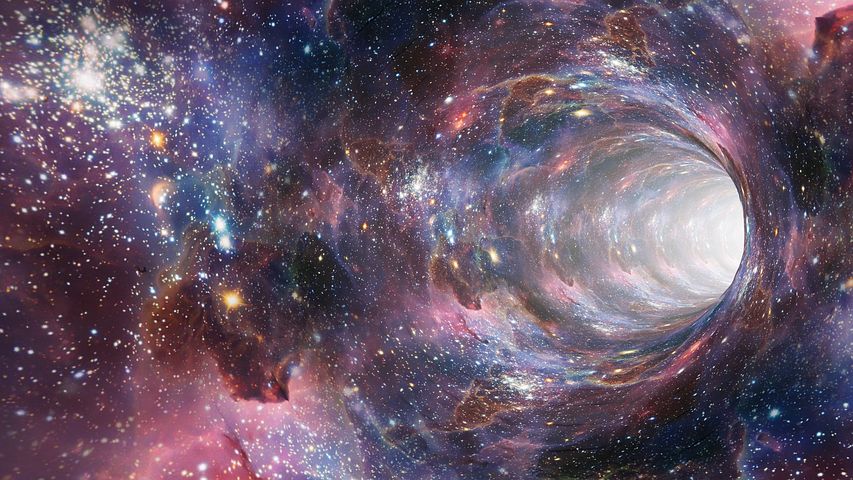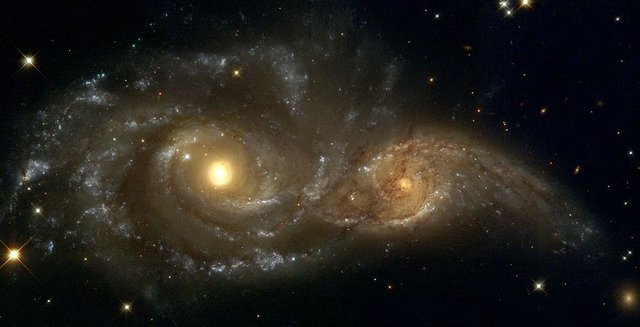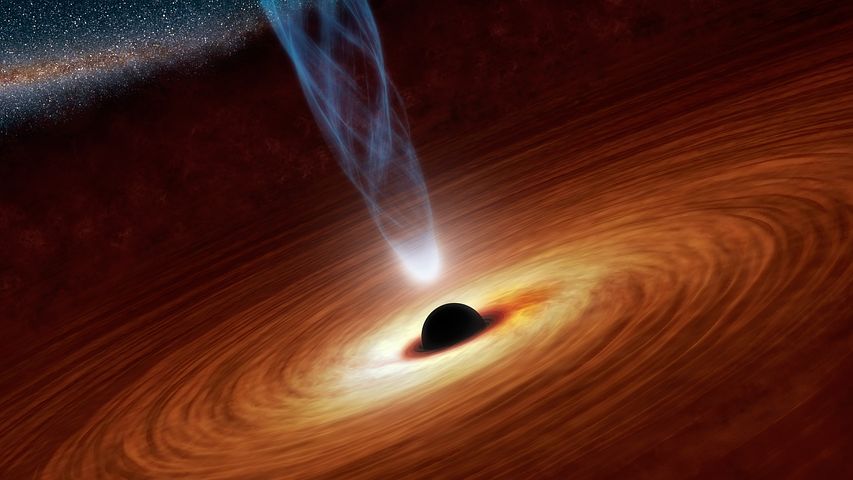KNOWING THE UNIVERSE #1- BLACK HOLES ?????
We might be hearing about black holes that they are gonna engulf our beautiful planet earth, yes it's true but I will take millions of year to happen. so, let's have a look at these black holes and how they are going to affect us.
WHAT ARE BLACK HOLES ?
black hole is a region of spacetime exhibiting such strong gravitational effects that nothing—not even particles and electromagnetic radiation such as light—can escape from inside it. The theory of general relativity predicts that a sufficiently compact mass can deform spacetime to form a black hole. The boundary of the region from which no escape is possible is called the event horizon. Although the event horizon has an enormous effect on the fate and circumstances of an object crossing it, no locally detectable features appear to be observed. In many ways a black hole acts like an ideal black body, as it reflects no light. Moreover, quantum field theory in curved spacetime predicts that event horizons emit Hawking radiation, with the same spectrum as a black body of a temperature inversely proportional to its mass. This temperature is on the order of billionths of a kelvin for black holes of stellar mass, making it essentially impossible to observe.

HOW ARE THESE BLACK HOLES ORIGINATED ?
Objects whose gravitational fields are too strong for light to escape were first considered in the 18th century by John Michell and Pierre-Simon Laplace. The first modern solution of general relativity that would characterize a black hole was found by Karl Schwarzschild in 1916, although its interpretation as a region of space from which nothing can escape was first published by David Finkelstein in 1958. Black holes were long considered a mathematical curiosity; it was during the 1960s that theoretical work showed they were a generic prediction of general relativity. The discovery of neutron stars sparked interest in gravitationally collapsed compact objects as a possible astrophysical reality.

Black holes of stellar mass are expected to form when very massive stars collapse at the end of their life cycle. After a black hole has formed, it can continue to grow by absorbing mass from its surroundings. By absorbing other stars and merging with other black holes, supermassive black holes of millions of solar masses (M☉) may form. There is general consensus that supermassive black holes exist in the centers of most galaxies.
Despite its invisible interior, the presence of a black hole can be inferred through its interaction with other matter and with electromagnetic radiation such as visible light. Matter that falls onto a black hole can form an external accretion disk heated by friction, forming some of the brightest objects in the universe. If there are other stars orbiting a black hole, their orbits can be used to determine the black hole's mass and location. Such observations can be used to exclude possible alternatives such as neutron stars. In this way, astronomers have identified numerous stellar black hole candidates in binary systems, and established that the radio source known as Sagittarius A*, at the core of our own Milky Way galaxy, contains a supermassive black hole of about 4.3 million solar.
DRHEY REALLY EXIST ?
Probably. Astronomers have discovered quite a few objects that can only be explained as black holes. These objects are dark, so we cannot see them, but they exert a powerful influence on the stars, gas, and even space around them. These objects are so dark, dense, and heavy that they must be either black holes or something even more exotic.
DO BLACK HOLES ARE GOING TO AFFECT US A LOT?
The closest black holes yet discovered are several thousand light-years away. They are so far that they have no effect on Earth or its environment. A supermassive black hole appears to inhabit the center of the Milky Way galaxy, about 27,000 light-years away. Although it is several million times the mass of the Sun, its great distance insures that it won't affect our solar system.

The exact effects depend on the size and mass of the black hole. A "stellar-mass" black hole - a black hole that's a few times the mass of the Sun - exerts a strong "tidal" pull on any object that approaches its event horizon. That is the same effect that creates the tides on Earth: the gravitational pull on the side of the object that is closest to the black hole is significantly stronger than the pull on the opposite side, so gravity stretches the object and pulls it apart. (Tidal gravity is less pronounced for an object that approaches a supermassive black hole, because there's a gentler "slope" in the changing gravity field.) As seen from an outside observer, time appears to pass slower for an object that nears the horizon, and its light is stretched to longer and longer wavelengths.
So it's true that earth is going to destroy one day, the reason may be black holes or other reprobating space event.
References :-